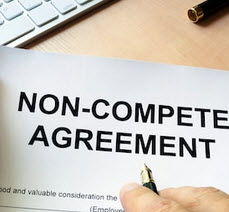Can You Enforce a Non-Compete Clause in Florida?

As an employer, preparing non-compete clauses can be useful when it comes to protecting certain aspects of your business. It is important to draft a legally binding agreement so that it can be enforced in the event of a breach by the former employee. In Florida, a non-compete agreement can be enforced provided it is reasonable when it comes to geographical area and time, and it must protect the employer’s legitimate business interests.
Legitimate Business Interests
Legitimate business interests can be defined as:
- Professional or business information that is deemed valuable to the business;
- Any trade secrets;
- Specialized or extraordinary training;
- Important relationships with existing or prospective clients, patients, or customers; or
- Any goodwill that is associated with your business through its geographic location, a trademark, or marketing.
Common Ways Employees Can Defeat Non-Compete Clauses
If an employer’s non-compete clause is not well-drafted, it runs the risk of an employee successfully convincing a court that the restriction is unenforceable. Some reasons an employee can be excused from a non-compete include:
- No legitimate business interest exists for a court to enforce. A non-complete should not be overreaching. For example, if an employer will seek to enforce the non-compete clause against a low-level employee who does not have access to the employer’s information or methods that would be a protectable interest, the probability of a non-compete being held unenforceable increases.
- Employer is the one who breached the non-compete contract. If the employer has breached the contract that contains the non-compete clause, the employee may be excused from the non-compete restriction. For example, if the employer has failed to pay all required compensation or provide insurance to the employee, the employee may be relieved of his or her obligations.
- The information classified as confidential is not truly confidential. If an employer is trying to enforce a non-compete clause based on information that can be readily obtained from public sources, it may have trouble enforcing a non-compete predicated on the employee’s access to such information. For example, a prospective customer list based upon a public business directory is not confidential information and is likely insufficient to support the enforcement of a non-compete.
- The non-compete clause extends too far into the future. The law provides that, assuming there is a legitimate business interest to protect, an employee’s non-compete restriction that covers a period six months or less will be presumed to be reasonable; a restriction between 6 months and 2 years will be neither presumed reasonable or unreasonable; and any restriction more than 2 years will be presumed unreasonable. While these presumptions can be rebutted, a court will enforce these presumptions absent sufficient evidence to overcome them.
Retaining a Florida Business Litigation Attorney
If you have a matter involving whether a non-compete clause will be enforceable, you should have a skilled business or employment litigation attorney review it. At Rabin Kammerer Johnson, we have extensive experience litigating cases involving the enforcement of non-compete agreements, and other types of business disputes. Contact our office at 561-659-7878 to schedule a consultation.
